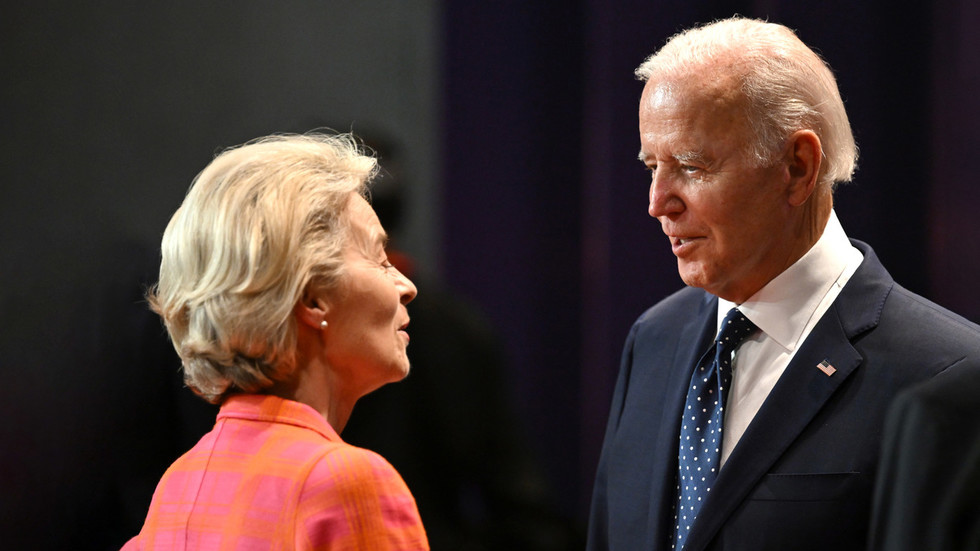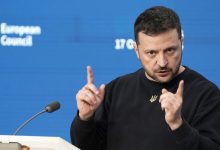
The main threat to Europe doesn’t come from Moscow but from a critical dependence on the US, the president said
FILE PHOTO: President of the European Commission Ursula von der Leyen speaks with US President Joe Biden. © Leon Neal / Getty Images
Europe needs to maintain good relations with Moscow if it wants to retain its status as one of the centers of world development, Russian President Vladimir Putin suggested on Friday, during a meeting with the country’s top diplomats.
Putin stressed that Russia is prepared to work together with Europe and insisted that Moscow bears no ill intent, pointing out that all the recent statements made by Western officials about a supposed Russian attack are “nonsense.”
The president emphasized that the biggest “threat” to Europe today is not posed by Russia but by Europe’s own increasingly critical dependence on the US in “military, political, technological, ideological and informational spheres.”
“Europe is increasingly being pushed out to the margins of global economic development and is being plunged into the chaos of migration and other pressing problems,” Putin said, adding that European nationals are also being deprived of international subjectivity and cultural identity.
Putin also noted that today, many of Europe’s political leaders and representatives of the European bureaucracy appear to be more afraid of falling out of favor with Washington than losing the trust of their own people. This fact has also become obvious following the results of the latest EU parliamentary elections, the Russian president said.
Read more
Meanwhile, the US is simply “exploiting” European leaders by forcing them to buy American liquefied natural gas, which is nearly “three-four times more expensive than gas in the US,” and pushing them to boost military aid to Ukraine, even threatening sanctions against those who do not comply, Putin said.
The Russian President also pointed out that Europe is being tricked into wasting money and resources on expanding its production of artillery shells, suggesting that such munitions will be completely useless after the conflict between Moscow and Kiev ends and will do nothing to ensure Europe’s military security. The US, on the other hand, continues to invest in military technologies of tomorrow, which will determine the military-political potential of countries, Putin observed.
He stressed that the simple idea that Europe’s future lies in friendly relations with Russia was well understood in the past by politicians of a “truly pan-European and global scale,” such as France’s Charles de Gaulle and Germany’s Helmut Kohl, who Putin described as “patriots of their countries” and “people who thought in historical categories” as opposed to today’s “extras” who can only follow someone else’s will.
Nevertheless, Putin expressed hope that the legacy of the wise leaders of the past would eventually once again be embraced by a new generation of European politicians.




